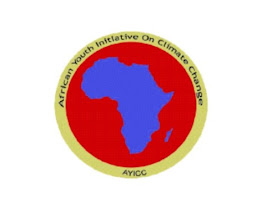Tragedy in sustainable landuse
Willing seller and
willing buyer; does that rings a bell? I believe it does. Land tenure in Kenya
has been a contentious issue since the white man boarded a plane back home. It
being a crucial factor of production has aroused a myriad of feelings among the
common mwanachi(citizen ). The unpleasant impact of the colonial regime still
running deep in our lands, evidently from the ongoing cases in UK courts by the
mau mau veterans. Unfortunate enough, “wanjiku” (kenya) entrusted our leaders
who tirelessly fought for our independence the responsibility of giving back
what the colonial government forcefully took from our fathers, believing that
they had our interest at heart, that the colonial settlement camps will no
longer be home but a passing cloud. Little did we know that this was eternity,
home forever? Population grew steadily in our new homes. Farming remained the
source of food and livelihood. Inheritance, a dominant cultural practice was
and has not been eroded hence the land grew smaller, literally.
Agricultural
land has gradually been exploited in pursuit of food, rivers highly polluted
and overexploited from its multiple uses, domestic use, watering animals,
farming, and industrial uses. A new disaster hit the land, climate change grabbing
the last bit of glory from the already depleted natural land. Land that was communally owned and governed
gradually became the bone of contention. Everyone ensuring they get an equal
piece of the cake, overgrazing, uncontrolled farming, among others subjected
the land to depletion at its maximum. Tragedy at its best hit our common
resource, land. (Tragedy of the commons)
Further away from the
settlement camps were the vast lands that have been subjected to commercial production,
large trucks of tea, sisal, pineapple plantations. Where protection of land
degradation becomes an option, economic rationalism governs its utilization. The
best crop/investment that brings forth sweetest fruit rules the day. As land
changes hands, so does power. The willing buyer and the willing seller invade. Their
word becomes law. Common mwananchi (citizen) is reduced to a mere factor of
production. The efforts to curtail any development that may cut them off from
their daily bread is considered hindrance to modernization and advancing
production through technology (a case of tea pickers against mechanized tea
picking in nyayo tea zones, Kenya). Their persistence through various strikes
to air their grievances subject them to the law normally interpreted in favor of
modernization, their plea
sidelined and considered irrational and archaic. The higher the marginal
benefit the gradual increase in the ecological foot print, land is henceforth
used as infinite resource. Fertilizers and other biochemical became the order
of the day; our highly valued land becomes a series of unrelated resource. Climate
change takes a toll on already depleted resource, efforts to mitigate this
affects cost us emotional, physical and economic muscles. Land enclosure/individualization,
having seemed a solution as a land tenure system becomes a tragedy in itself. (Tragedy
of enclosure)
It is therefore,
evident that land tenure provides a legal and normative framework within which
agricultural, economic and any other land use systems are conducted. Tenure
insecurities either customary or statutory affects this activity, Kenya being
highly agricultural makes it imperative that the legislators pursues policies
and land tenure systems that promote sustainable land use and development.
By: Gladys N. Gatiba

Comments
Post a Comment